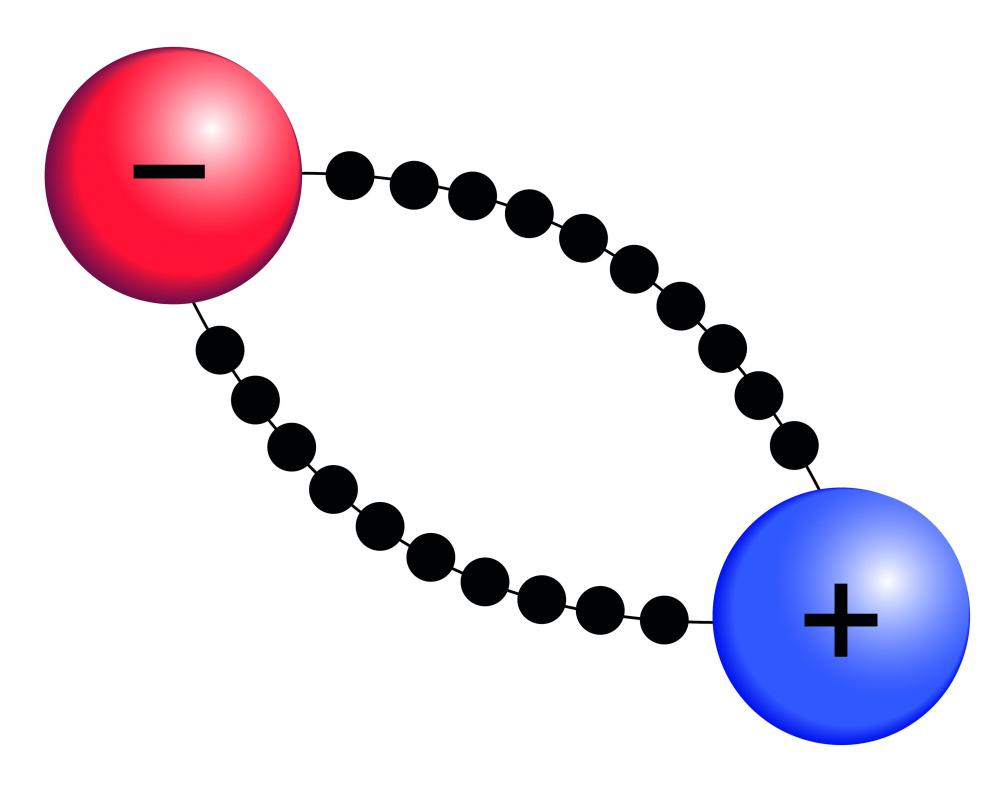At WiseGEEK, we're committed to delivering accurate, trustworthy information. Our expert-authored content is rigorously fact-checked and sourced from credible authorities. Discover how we uphold the highest standards in providing you with reliable knowledge.
What is an Electrophile?
An electrophile is an atom, ion, molecule or even a compound that has an affinity for electrons, meaning that it is inclined to become negatively charged. All of these groups are called electrophilic reagents. They act as electron acceptors during a chemical reaction.
The literal meaning of the word "electrophile" is "electron-loving," which denotes its tendency to attract electrons. When the electrophile is free in the environment, it has a positive charge because of a lack of one or more electrons to one of its atoms or molecules. In order for a chemical reaction to be performed, an electrophile must be near a compound or group that has an excess of negative charge and tends to give out electrons. Such a group is called a nucleophile. When an electrophile is in the proximity of such a reaction partner, it will accept a pair of electrons from the nucleophile and perform a bonding reaction that will result in new chemical compounds.

Apart from the positively charged compounds or groups, polarized molecules that are neutral as a whole might actually behave as electrophiles when the electrophilic part of them comes close to a nucleophile. Electrophiles are in general regarded as Lewis acids, which is a term for compounds that actually receive electrons during the chemical reaction. Some of them are BrØnsted acids, and these are compounds that actually donate protons or hydrogen-plus ions during a chemical reaction. Either way, the result is that the electrophile is being negatively charged.
The electrophilic property of chemicals is apparent in organic chemistry. The electrophile is usually one of the aforementioned compounds, and the nucleophile is a large organic molecule. The bonding takes place upon either the deduction of the double or triple bonds among Carbon atoms, the electrophilic aromatic substitution of other existing groups or the attachment to a polarized section of the complicated organic molecule.
Electrophiles are also ranked according to their degree of reactivity or their tendency to accept electrons. A measure of this reactivity is the so-called electrophilicity index ω, which indicates its macroscopic electrical power. A higher electrophilicity index indicates that a compound is more electrophilic.
AS FEATURED ON:
AS FEATURED ON:











Discuss this Article
Post your comments